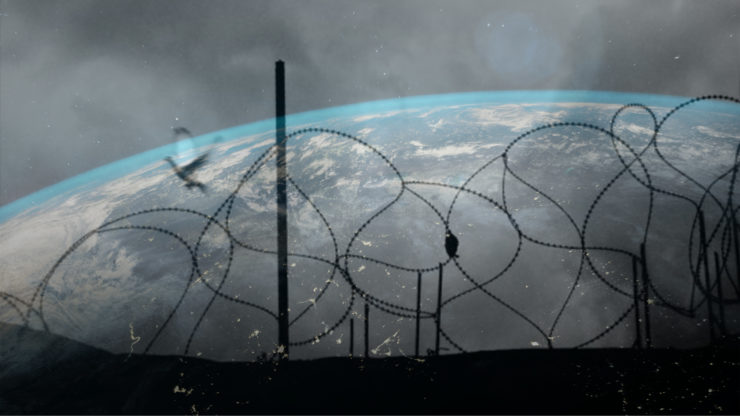
The already disintegrated world has been further fragmented by different wars and rising tensions across different regions around the world. Amidst the already rising tensions between the two superpowers of the world, China and the United States, the Russia-Ukraine conflict and Israel’s genocide in Gaza have widened the gulf between different nations, especially the Eastern and Western nations. A huge number of elections, worldwide, in the year 2024 in different countries, including Russia, and the USA, have further added fuel to this uncertainty in the year ahead. Therefore, it is most likely that the world will remain in an unsettled state of affairs due to rising geopolitical tensions, driving ambivalence in international markets.
Moreover, rising multipolarity will gain a surging momentum, but multilateral institutions will continue to remain under duress. The world is likely to experience an increasing role of the middle powers in molding global geopolitics due to rising multipolarity in the world. Saudi Arabia, India, and other BRICS member states are likely to influence the world to a larger extent role due to their rising economic significance.
The year 2024 is likely to observe extremely unpredictable events in terms of geopolitical trends, challenges, and risks. Different international organizations have predicted a high risk of instability in the coming year. The Economist has predicted in its report, World Ahead in 2024, that the world will face a multipolar disorder in 2024 due to escalating geopolitical conflicts. Raging geopolitical crises in the world corroborate this report, as these crises will keep the world unstable in the years to come.
A London-based risk consultancy firm, Control Risks, also foresees risk management overload in the world due to the probability of a high-water mark in crisis intricacy and disruptiveness. Moreover, the World Economic Forum, along with some other international think tanks, has also predicted the coming year to be a stage for the commencement of a polycrisis. The most important strategic issue in the year 2024 will be the trajectory of Sino-US relations. Although both the superpowers acknowledge the perils of unmanaged conflict and have sought to normalize their ties, their differences on a host of issues will, most likely, haunt all such attempts. The rivalry between the two sides is likely to increase in the Indo-Pacific theatre due to increasing US presence in the Indian Ocean and rising China and Russia-led multilateral organizations, which threaten the former’s global hegemony.
Recent events around the globe, especially the expansion of BRICS and the US proxy war in Ukraine, have augmented the significance of Russia and China in international politics. The expansion of BRICS has increased the pace of declining US hegemony and the rise of Russia and China as the new superpowers of the world. It has also provided a novel opportunity for the nations that have been the target of US aggression in the past to form alliances with other strong nations. Moreover, the failure of the United Nations in mitigating international conflicts, especially Israel’s genocide in Gaza, has increased the potential of unilateral decision-making by power nations of the world.
Moreover, military and diplomatic interventions of the United States in different countries have also increased the probability of cooperation between the global south. All this signifies a sharp decline in the US hegemony which has frustrated the country. Consequently, containing China has become the top priority of the United States to maintain its hegemony over the world. This will keep the relations between the two sides intense. Technological decoupling and military competition between China and the US will escalate, and Taiwan will remain a precarious flashpoint.
However, some think tanks, including Control Risks, forecast a holding pattern in the tension between the two sides due to their domestic issues, economic problems in China, and presidential elections in the US. Such think tanks have rejected the possibility of direct military conflict between the two countries in 2024. Nonetheless, the probability of an accidental clash between them in the Indo-Pacific region could not be ruled out.
West’s non-serious attitude towards the Russia-Ukraine conflict will keep intensifying strain between the West and East, with serious implications on global supply chains and the economy. The continuation of this war will increase inflation across the world, especially in Europe, in 2024.
Furthermore, Israel’s genocide in Gaza has widened the gulf between the Muslim world and the West. The callous behavior of the United States and Western support to Israel has ruptured international peace and posed a threat to international stability. It has made the Muslim world and pro-Palestine hostile to the US and other Western supporters of Israel. This will impinge the US policy of normalizing relations between Israel and the Arab world. Many experts and international leaders have warned that this war can expand beyond the region. Therefore, the year 2024 will serve as a challenge for all major powers to establish and maintain long-lasting stability and peace, and coerce Israel to accept a two-state solution. In addition, Israel’s atrocities in Gaza can also provide impetus to terrorism in the region. In all this situation, the middle powers will gain significant influence over global politics in 2024 by playing off the US-China rivalry.
2024 will be observed as the year of change in many countries, as they will hold general elections. The most significant of these will be the US presidential elections. If Donald Trump returns to power, he will pursue the same disruptive foreign policy, which will increase international tensions and will also cast negative impacts on United States climate change policies and commitments. Democracy will also continue to decline in the coming years due to the rise of non-democratic forces in different countries. Cyberattacks and AI will keep threatening international peace in the coming year. On the whole, the world will be highly uncertain and precarious in 2024.
Abbas Hashemite – is a political observer and research analyst for regional and global geopolitical issues. He is currently working as an independent researcher and journalist, exclusively for “New Eastern Outlook”.